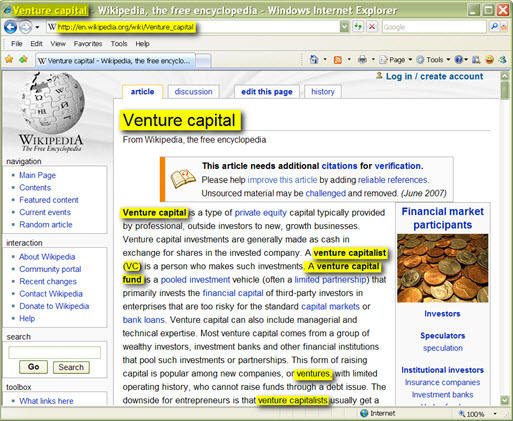How Long Does It Take For A Business Category To Update On Instagram
The view from the meridian ain't bad
Got your sights on a keyword? Want to see your website on the elusive first page of Google for a given search term? Prepare yourself: Unless y'all're Wikipedia or The New York Times, it won't be like shooting fish in a barrel. But it's not incommunicable, either. Seriously – nosotros practise it all the time!
Ranking for a keyword in organic search is a repeatable process. You won't get the results y'all want 100% of the time, peculiarly if you're a new website trying to rank for a pop keyword, simply if you take content marketing and SEO seriously, you tin can start to make things happen. Things similar rankings, and traffic, and sales, oh my!
Here are the 10 steps to rank for a keyword in Google.
Step 1: Lay the Background
This is really more than of a pre-step than a first step. You lot'll need to have some basics in identify before y'all can hope to rank for whatever random keyword. These pre-requisites include:
- A strong website – The longer your website has been around, accruing authorization and links, the amend. Information technology'due south also key that your entire site follow SEO best practices – kickoff with Google's Webmaster Guidelines if y'all don't know what that means.
- A network to draw on – In order to rank quickly for a keyword, it'south very useful to have a congenital-in network to share new content with – a blog following, an audition on social networks like Facebook and Twitter, email contacts you tin can reach out to for occasional help with a link. If you lot don't know what that ways, it's fourth dimension to start thinking about link building as relationship building.
Don't rush this stuff in your race for Cyberspace golden. If you don't do things right the first time, y'all'll but have to do them again later.
Step 2: Do Your Initial Keyword Research
You may think you know what keyword y'all desire to target, only fact-cheque your instincts. Use several keyword tools to get a sense of the search volume for the keyword besides as the competition earlier you finalize your keyword selection. Your main considerations will include:
- Choosing a keyword with good book, but not as well much book – In general you don't desire to target a keyword that has low relative search volume if there's an equivalent term that is much more pop. For example, in that location are usually over twice every bit many searches for "blah blah jobs" versus "apathetic blah careers." However, don't always automatically go for the keyword with the highest volume or difficulty; some keywords are merely too competitive and non worth your fourth dimension. You're not going to rank for "airline" unless you are, in fact, an airline.
- Choosing a keyword that's relevant to your business model – You're more than likely to succeed in ranking for a keyword if the term is relevant to your site and your business. You're also more likely to get some existent return on your ranking – recollect that rankings in and of themselves aren't particularly valuable, unless they're driving worthwhile traffic and leads. For instance, a party planning business might target "how to melt for a political party" – but "how to cook rice" isn't really going to be relevant to them or their target audience.
At this phase of the procedure, you should also make a list of close variations on your primary keyword. These will exist helpful in writing and optimizing your content afterward on.
Use WordStream's Costless Keyword Tool to notice your most rank-worthy keywords.
Footstep 3: Bank check Out the Competition
Once y'all've settled on a keyword, do a search for information technology on Google and a few other search engines to see what your contest is already doing. Pay particular attending to:
- The domains and URLs – How many are exact match domains? Does every URL in the tiptop ten include the keyword?
- The titles – How do the title tags comprise the keyword?
- The type of content that's ranking – Product pages? Blog posts? Videos?
- The types of businesses that are ranking – Are they huge brands? Small businesses? News sites?
- How authoritative those sites are – You tin can utilize a plugin to check the age of the sites in the tiptop 10, the size of their link profiles and so on.
You're looking for means that y'all tin can differentiate yourself. You'll need to do at least equally much as your competitors are doing to beat them. Ideally, y'all should be doing more than, and doing it better.
Step 4: Consider Intent
The more specific the keyword (think long-tail keywords), the easier it is to estimate the searcher's intent, and the easier it will be to serve up what those searchers are probably looking for. In search marketing, "intent" is our best estimate at what the person using the search query really wants. Consider the post-obit keywords and detect how much easier information technology is to judge the intent from the words alone as you lot go down the listing:
- glasses
- eyeglasses
- disbelieve eyeglasses
- discount eyeglasses frames
- discount eyeglasses frames for kids
Ask yourself, what kind of content best serves the keyword? In this instance, it would obviously be a pick of kid's eyeglasses for sale. From the first term, you lot can't even tell if the person is looking for eyeglasses or drinking spectacles. And fifty-fifty for the second, the person might just be looking for pictures of eyeglasses; in that location is no articulate intent to buy. An e-commerce business is mostly going to be trying to rank for commercial keywords.
Google'south founders accept said that the perfect search engine would serve but ane result. You desire to exist that one result that satisfies the searcher's need so they don't bounce back to the search results, looking for a better reply.
Step 5: Conceptualize the Content
Next, form a plan for the actual content you're going to create that will – hopefully – rank for your chosen keyword. There are many paths to ranking for a keyword, including merely non limited to:
- An article
- A blog post
- A product page
- An index or directory of links (to other pages on your site or around the web)
- An administrative guide
- An infographic
- A video
How long volition it take to create the content? Who should create it? Volition you be doing everything in-house or outsourcing? Exercise you accept all the resources and budget you lot need? Don't get defeated: No matter your size or your budget, you have the ability to create a blog post. Content like infographics and videos will crave more resources. Sometimes, the best way to reply a search query is with some sort of tool, similar a mortgage calculator. If this is the instance, you'll demand technology resources.
Step six: Execute
Here'southward where the rubber meets the road. Execute on your programme. Again, yous shouldn't rush any of these steps, but it's especially of import not to blitz this one. More than and more, search engines are looking for high-quality content that benefits the searcher, not keyword-stuffed spam or pages full of ads that only benefit you. If you'd rather purchase traffic than put in the attempt it requires to earn "free" organic search traffic, investigate PPC. "SEO isn't piece of cake" should be your mantra.
Step 7: Optimize for Your Keyword
In reality, steps vi and 7 should exist intertwined. Optimize your content while you're creating it, rather than applying optimization afterward the fact. This is where the list of keywords you lot formulated in stride 2 comes in. Leverage those keywords where yous tin in your content, but not to the point of sounding like a crazy robot. Retrieve that there are a lot of "invisible" places for keywords, and I'm not talking almost using white text on a white background or anything else that violates Google guidelines. I mean stuff like paradigm file names – users won't see these if they're not looking for them, but they can increase your keyword rankings.
For a full listing of on-page optimization factors, check out SEOmoz's guide to the "perfect" folio. Another good tip is to copy Wikipedia, whose pages tend to have stellar on-page optimization.
Before yous striking "publish," it's a good idea to quickly double-bank check your keyword research. It's possible that your content has evolved during the development and cosmos phases, and you'll demand to make certain that there's still alignment between keyword and content.
Check out our free download: 25 Ways to Increase Traffic to Your Website
Stride 8: Publish
Information technology's (finally) fourth dimension to push your content out into the globe. Depending on the type of content it is, y'all may need to exist careful about scheduling this step. This isn't usually a consideration for evergreen content, simply information technology may be important for content that'due south tied to something in the news, an event or a tendency. Y'all may also need to coordinate with PR or other interested parties at your company, for example when launching content related to a new product or service.
Step ix: Promote
This step is important and should come up immediately after publishing – in fact, for large pieces of content, it's great if you can practise some media outreach earlier the piece goes live. Make sure you do what you can to get your content in front of equally many eyeballs as possible before it even has a chance to rank for the keyword:
- Share your content through your business concern's social accounts – Twitter, Facebook, Google+, LinkedIn et al. If y'all can, exercise this through your personal accounts too.
- Utilize social buttons or widgets on your site to promote independent sharing – Arrive piece of cake for readers and viewers to proceed the chain going. They're more likely to tweet or share your article if all they have to exercise is click a button.
- Build links to your content – Whatsoever the future of PageRank, link building is nevertheless a huge function of SEO (even if it is the near abrasive part). Check out our blog archive on the topic if you're looking to larn near link building.
Accruing folio views and social shares will help you accrue links, which will assistance you earn that ranking.
Step ten: Analyze
Yous're non quite done yet! The web is a living medium, and it's never too late to amend optimize your content. Check your keyword ranking manually (be certain you're signed out and non seeing overly personalized results) or with a rank checking tool. Likewise use your analytics to see what keywords your content is really ranking for – they might not be the exact ones you initially targeted. If, later on a couple of weeks or so, you lot're not ranking for the right keywords, you take more than piece of work to do. Make sure that your content:
- Is truly optimized
- Is truly loftier-quality
- Is truly visible
It's likewise possible that the keyword you chose is as well competitive and you need to calibration dorsum your appetite. Endeavour targeting less competitive keywords until you've built up more than authority.
That's information technology! This is the process we follow to rank for hundreds of keywords related to search marketing. Whatever your business niche, y'all can make the same process work for you. And then Go STARTED!
Image via Ragnar Jensen
Source: https://www.wordstream.com/blog/ws/2012/11/14/how-to-rank-for-a-keyword
Posted by: mendezsponly46.blogspot.com






0 Response to "How Long Does It Take For A Business Category To Update On Instagram"
Post a Comment